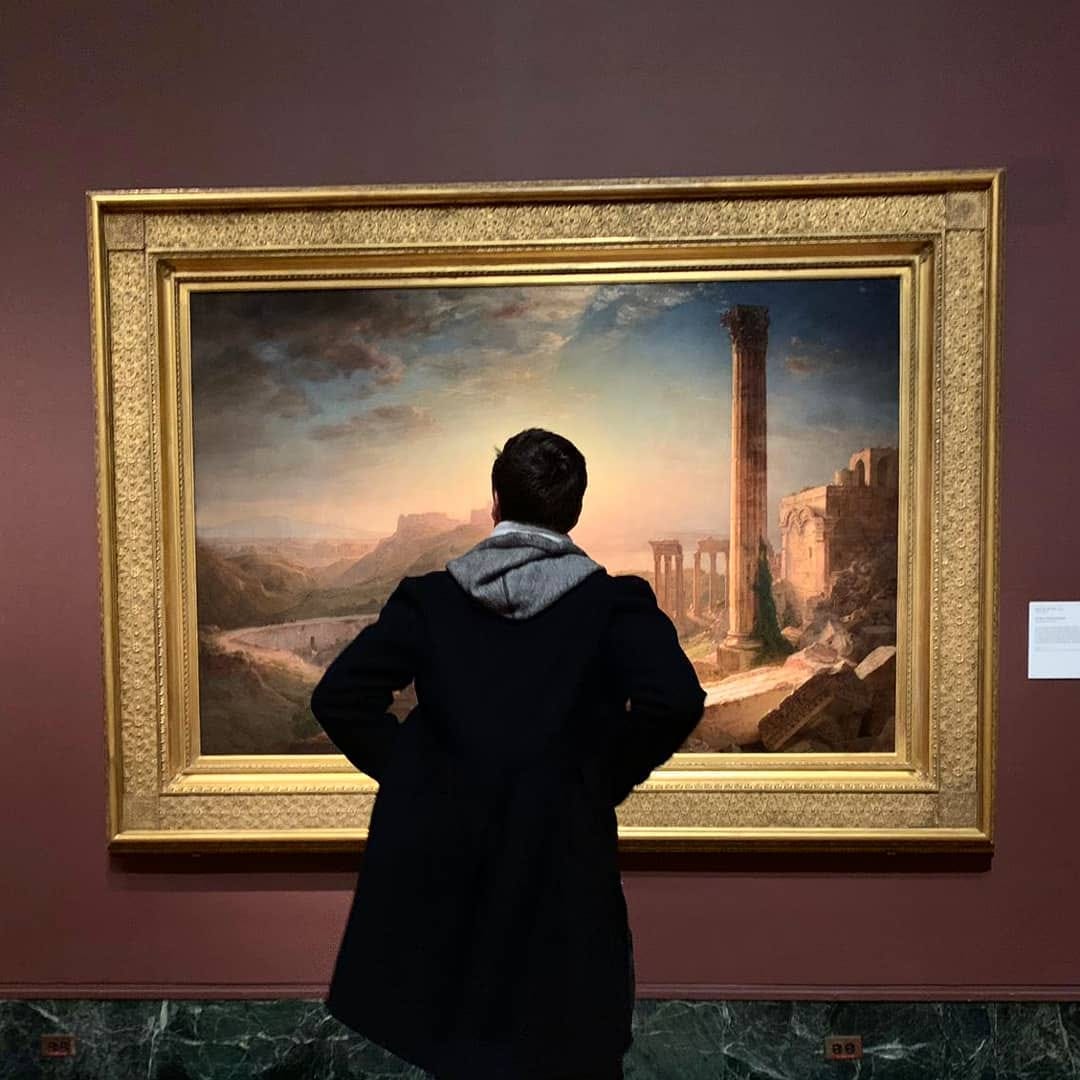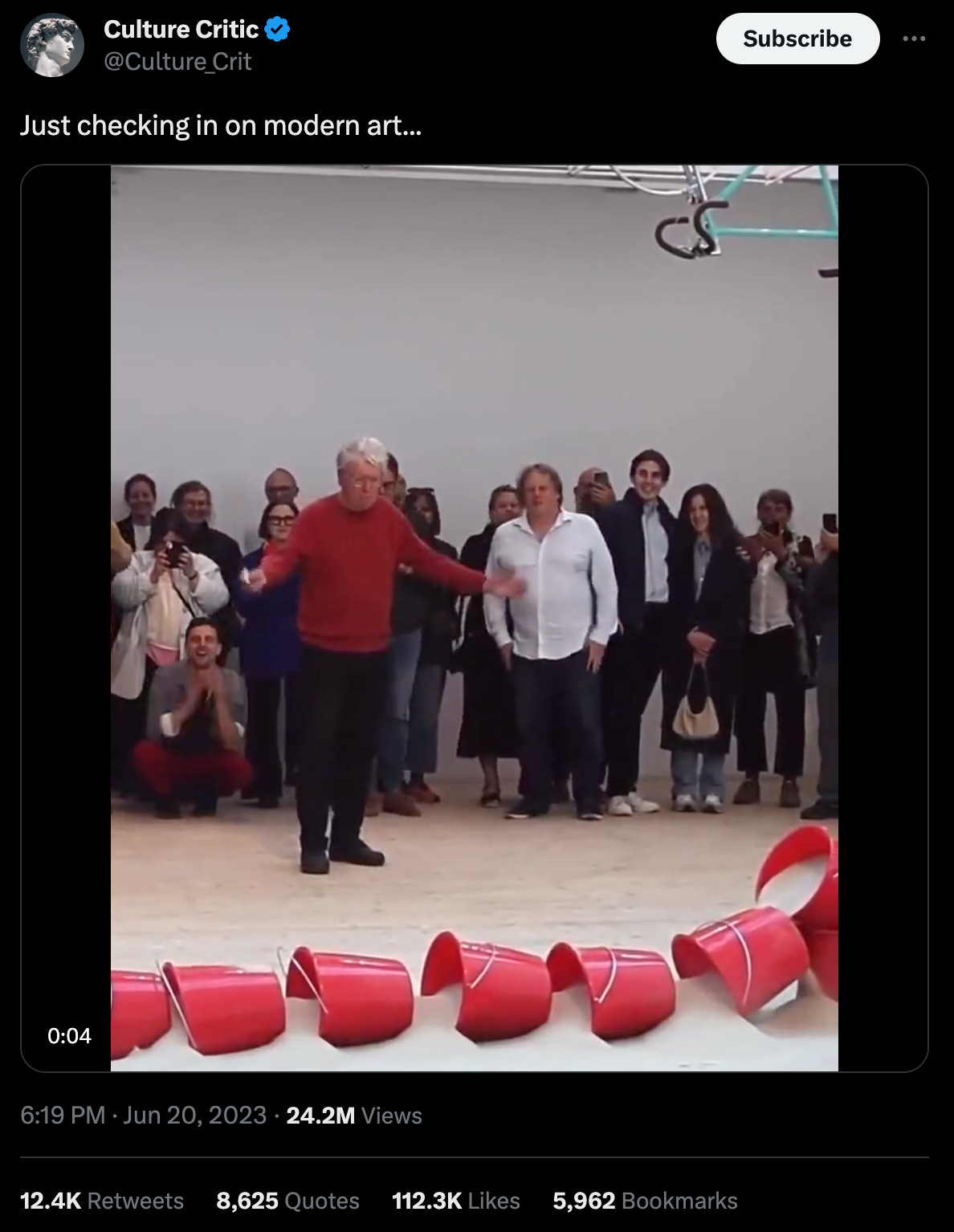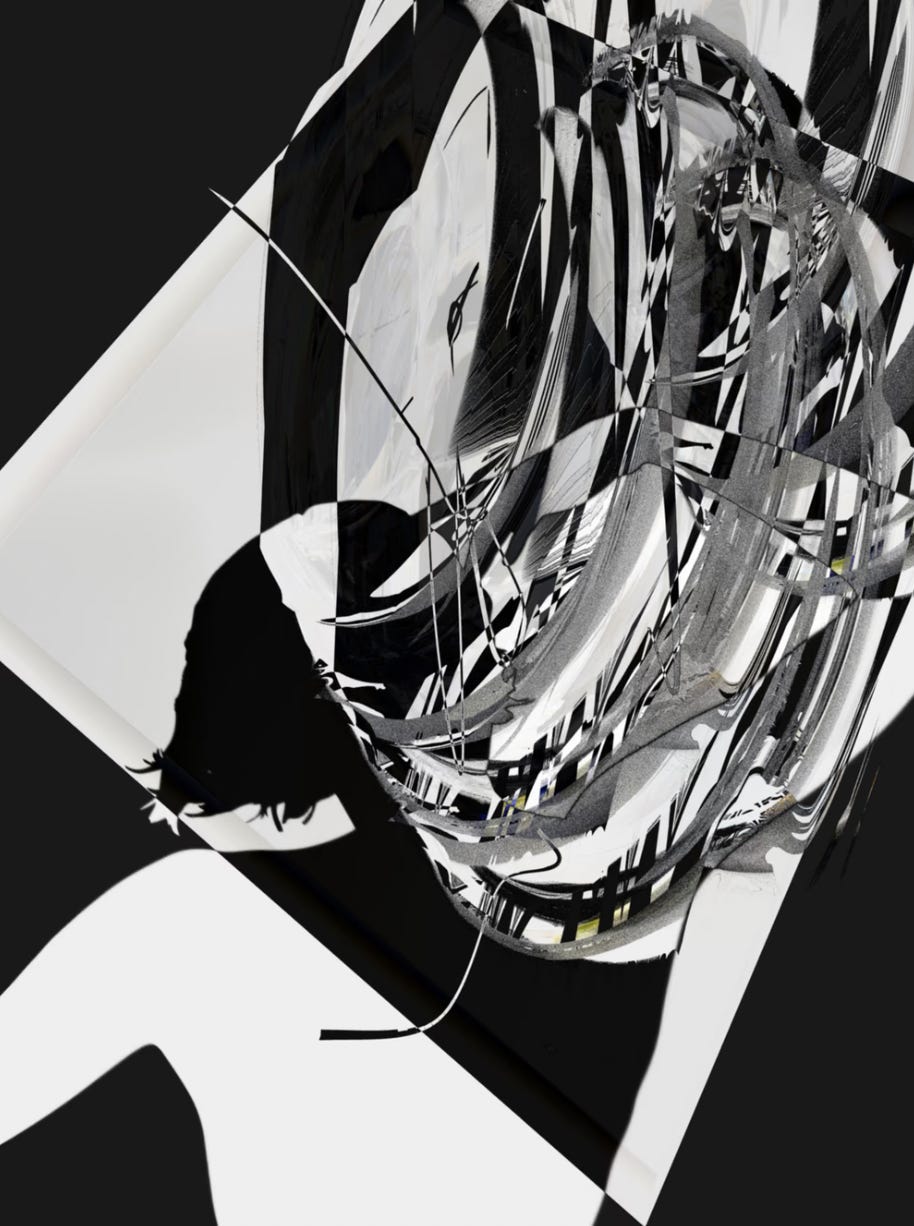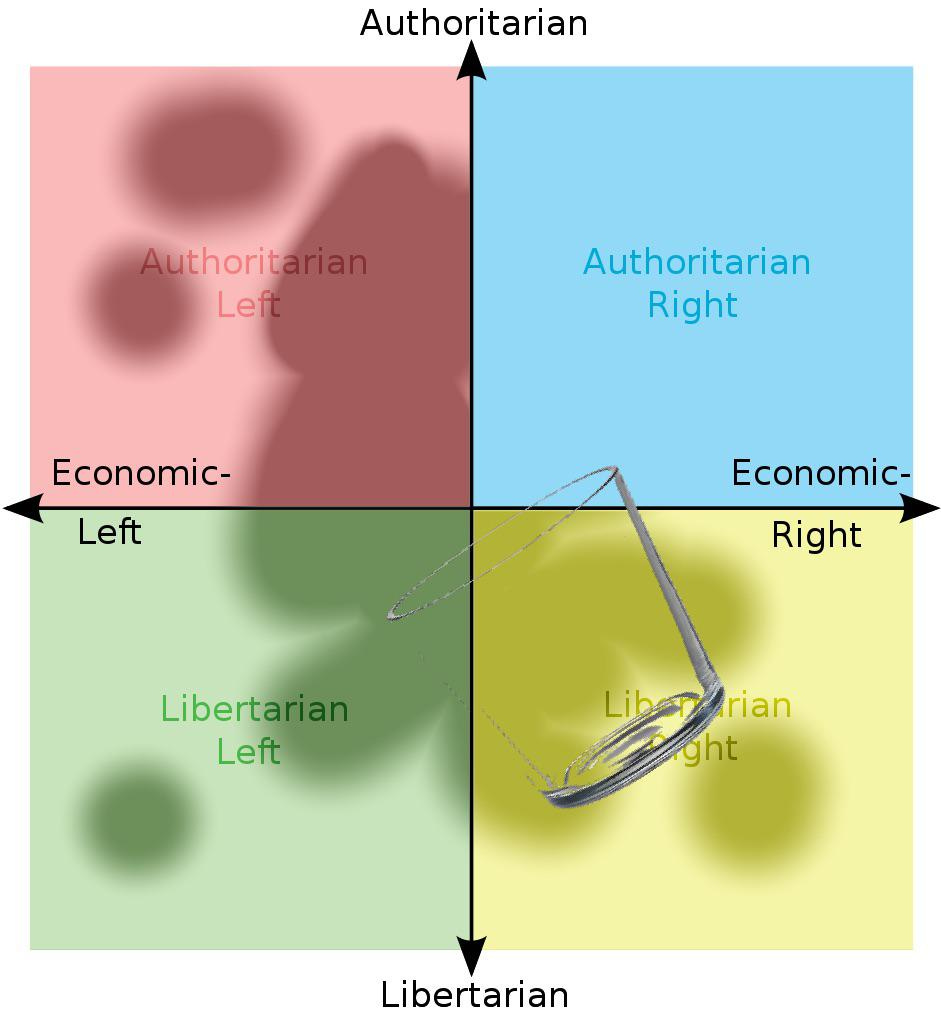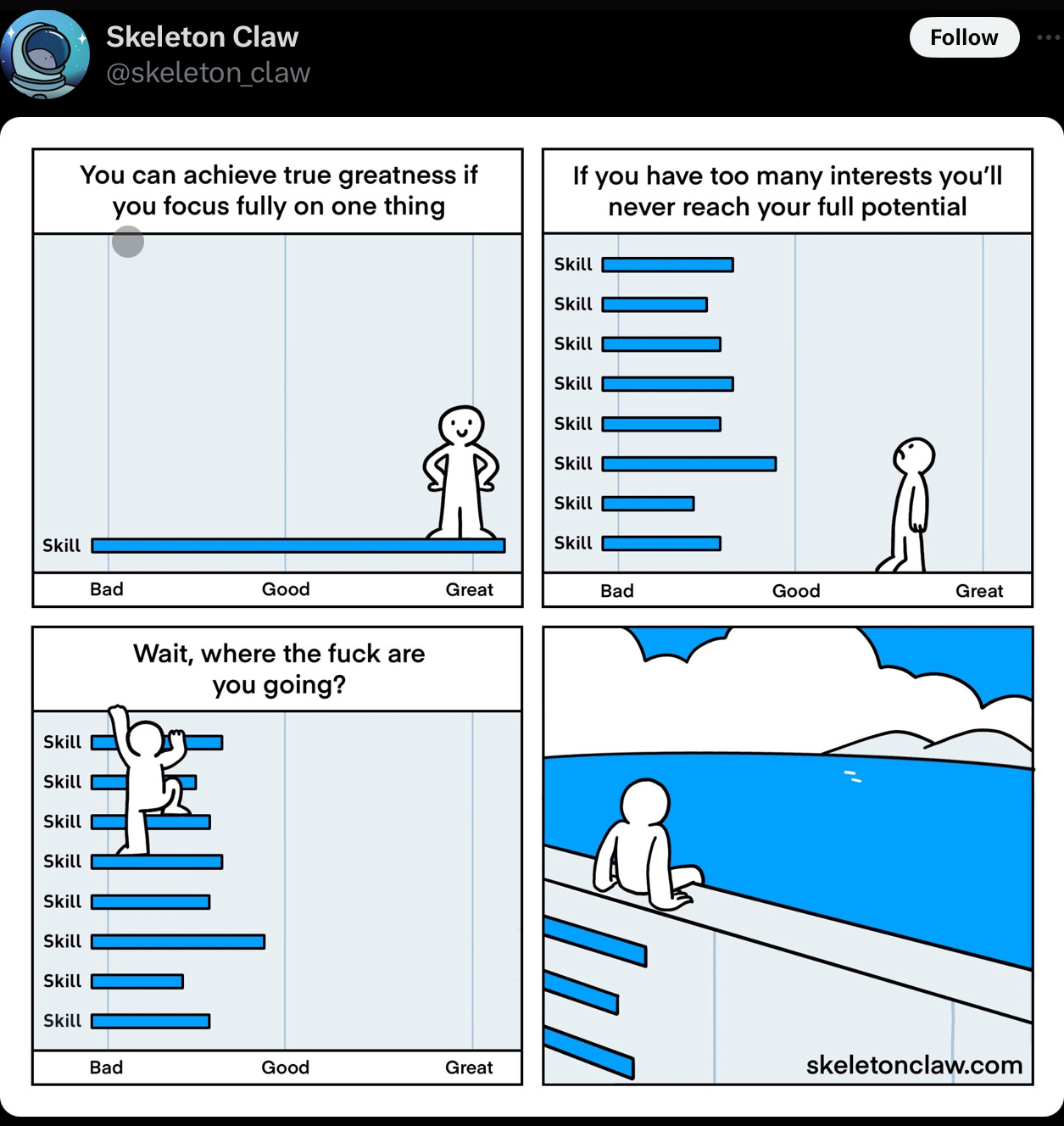The Artification of Culture
A response to Ted Chiang on AI. Also: Hanging Out and Simulacra, Music Data, and Hermanos Guttierez
In the recent New Yorker article by Ted Chiang (one of my favorite authors), he emphasizes in his essay, “Why A.I. Isn’t Going to Make Art”, by saying:
Art is notoriously hard to define, and so are the differences between good art and bad art. But let me offer a generalization: art is something that results from making a lot of choices.
I agree, but it’s not because of process. It’s because when technology reduces the cost of production and distribution, production shifts away from singular, visionary efforts to collective, decentralized efforts. There are still many ‘choices’ and intention involved, it’s just embedded in the network (and by extension, its context) and occurs in a distributed and highly socialized manner. Production relies increasingly less on an isolated process (eg, a novelist making many choices to their own story) and turns it into a continuous and constant conversation with the network. It is collective cultural production: many choices on the edge producing culture together. In doing so, the culture that’s produced can become increasingly illegible to outsiders. It’s the artification of all culture: whereby the cultural output carries far more context than merely the outcome of a singular process.
Let me explain.
Have you ever judged a book, literally, by its cover? With very little additional context, you’ve given something new a go?
Browsed a book store in the bookstore and read the blurb because the book’s cover looked interesting.
Found a local art gallery in a small town you’ve never been in and admired new art you’ve never seen before.
Heard a new song in the clothing store and shazamed it, saving it for later.
Browsed Netflix and found an anime you’ve never heard of and thought it looked interesting.
If you’re old enough to remember this, browsed a video rental store and took home a VHS tape with nothing to go off besides the blurb and maybe an actor you’ve seen once before in a film 3 years ago.
With the very little time we have in the world, we sometimes, literally *have* to judge a book by its cover. We rely on it. All the many cues that tell us that if we’re going to spend precious hours on this piece of culture, that it’s going to be worth our time. In eras where cultural production wasn’t as easy as it is now, it was easier to judge for two reasons: 1) cost and 2) legibility of the process.
Distribution was costly and now, it isn’t.
If you walked into a video rental store, there would still be bad films, but if you picked a film at random, it would likely be better than picking anything on Netflix at random.
If you walk into a book store today, there would still be bad books, but if you picked a book at random, it would still likely be more palatable than picking a random book from Amazon.
Same for music & gaming. Pick your physical store of yesterday and compare it to distribution platforms of today.
For most of culture, cost and legibility of the process were generally tied together in tandem. It’s only recently where they’ve been stripped apart. If you find a book in a bookstore today, the odds of there being an extensive process involved, is *still* high.
However, even though digital equivalents have become cheaper to produce and distribute, the digital equivalents still retained their legibility of process (and subsequent cost). A well-polished music video looks costly. A game with great graphics looks costly and is thus loaded with the perception of intent.
However, this has continued to decay to the point where what can be great isn’t always obvious.
Great music can emerge from presets.
Successful best-selling games can come from nowhere: see Flappy Bird or Goat Simulator. Why people enjoy it has to do more with how the culture is embedded into its context rather than how it is produced.
With the advent of generative AI, it’s just a continuation of this trend to what’s been the case with art all along: divorcing singular process from meaning.
Duchamp and his urinals *is* art, but the surface-level choices involved was minimal. However, its meaning was embedded in the many choices of Dadaism as an art movement. This rabbit holing of meaning is often met with confusion and frustration: as if all art must appeal to all.
“How *can* buckets of sand falling on a gallery be art?!?” asks the confused modernist.
Technology cuts up process, minces it, and churns out the abstract.
As Lincoln Michel ( Counter Craft ) notes, when the camera came for the painting, painting itself became more abstract, dense, and laden with newfound context.
AI boosters like to bring up the invention of the camera and how some initially argued it wasn’t an art form like painting. That history is a bit more complex, but either way photography did not replace painting. It changed painting. Photorealistic paintings stopped being as interesting and individual expression and style became more valued. In some ways, photography freed painting.
This is the trend for all culture.
Photographs made easier over time also mean that what it captured took on more niche and specific forms, to the point where social media can capture moments that only matter to a handful of people.
When digital art arrived, it made possible longform generative art where moments were captured in algorithmic snapshots, trying to capture the ineffable infinity of our era. From Vera Molnar to Operator.
When synthesizers, sampling, modern DAWs, the MP3, and broadband internet arrived, music became infinitely broad. People complained that DJs aren’t real artists and now you can find LA foogaze, y2k-era ps1 racing house music for the modern age, kawaii metal cross-over with european dance metal, Nigerian x South African amapiano afrobeats, and whatever else in-between.
With the rise of abundant RPGs and e-book distributions, we got LitRPG.
The easier it gets to produce, the more illegible it becomes. Younger generations enjoy Skibidi toilet and create classic political compass memes like this (unpacking this one is left as an exercise for the reader 😅).
In concluding his article, Lincoln notes:
So, let me try to end on a hopeful note. As AI fills the world with text and images that lack intention, perhaps we will look for art that is radical in its intentions. Perhaps we will value the artists who are the most conscious in their choices. AI can vomit up endless intention-free text and images. Quantity is its game. Quality, intention, choice, vision—that has to be ours.
I don’t think we’ve lost ‘choices’ that are involved in producing meaningful culture. It’s just that the choices have exited process and had become subsumed into the network. There’s a *lot* of intention, it’s just more niche, more social, more weird, more radical, and everywhere. It’s memes and using AI as actualization tools for niche conversations that wouldn’t have happened otherwise. Generative AI isn’t going to produce the next Marvel movie, made for everyone, but it will be weirder, and for many creators of yesteryear perhaps frustratingly simplistic. The liminal dreamcore meme extended dark fantasy universe is the start of it.
Welcome to the artification of culture where *anything* can become the most profound things you’ve ever experienced. It’s also why NFTs came onto the scene: if any culture can be art, we want to treat it that way (and collect it).
While I believe this trend will continue, it does admittedly bring forth fear, frustration, and confusion for many creators. It’s a challenge to consider how your culture might have to speak for others in the global, distributed, algorithmic art gallery. But, if there’s one big positive I enjoy about this, it’s that it requires many more conversations and through that, hopefully, a deeper understanding of life and experience we haven’t yet seen or understood. As weird it may all become.
Bonus Content!
Been nice to get some rest and recovery in after travels. :)
✍️Work - Novel #2
Properly back into working on draft 2 of my novel. Some days it can feel like it’s all falling apart because you chose to rewrite a section. When you tug too much on that thread it can feel like it all unravels. But, such is the journey and I enjoy this journey a lot. About 30%-40% through draft 2 and still enjoying writing it.
📺Watching - Umbrella Academy S4 + Rings of Power S2
Enjoyed the final season of Umbrella Academy. Not as great as the previous three and felt rushed (6 episodes vs the usual 10), but it still had more of what I enjoyed about the show. Goofy misfits with outlandish plots and great music (and dancing). Sad to see it end, but also glad it completed itself (something that’s sometimes amiss in today’s TV: you’re either watching something that keeps going forever or it gets cancelled).
I’m also enjoying Rings of Power S2 more than S1 so far. More magical, tighter, and feel the plot setup in S1 leads to a more engaging show. My only critique so far is that because it’s so dense, it feels like the majority of the time, characters are talking only in exposition (especially the elves). Still, enjoying it! :)
🏃♂️Running
Next week Sunday is my next half-marathon. I’m excited and nervous. I’ve been aiming for a sub 2hr half since I started running actively last year. I missed that opportunity in March when I fell ill before the race. However, the summer months have been brutally hot in DC which negatively impacted my training alongside travels. So, I don’t actually know how I’m going to do. In April, I did a 10 miler in 1h:30m, which is a decent ballpark for a sub 2hr half, but the last few kms was a tough push. In early Aug, I did a 10km race in 54:21 after not getting good rest (and jet lagged). So, I feel like I can do it and I’m in the ballpark range for it, it’s just a question of how comfortable it’s going to be. I really hope the weather plays along and it’s a cool morning. Either way, I’m putting in some final long runs and some conditioning and hoping for the best! Wish me luck!! I’ll report back next week.
📚Reading - Kafka on the Shore
Speaking of running! Been wanting to read Haruki Murakami, being known as the running novelist and decided to try Kafka on the Shore and been loving it. Interesting and mystical and wondering where it will all lead!
🖱️Links
Filling the Social Music Void
I feel like the only place on the internet for me where I’m engaging socially with strangers and music is YouTube comments. It sucks. I enjoyed this overview from MacEagon Voyce on old colleagues (at Oscillator) continuing the efforts in rethinking music today.
“Historically, platforms own the relationship between artists and fans — they own every like, every follower, every pre-save,” Anjos continued. “We want to show what’s possible when that data is user-owned and open across different platforms.”
Still a pipe dream and hope they succeed!
Jack of all Trades
Enjoying many disciplines comes with its downsides. You can’t stay up to date and on top of all disciplines. Context switching remains tough. Sometimes, you’re just average in some of the things you enjoy doing. But, one of the benefits I’ve found with being a jack of all trades is that because one is less invested in a particular outcome, it’s easier to be less restrained. When people think your work sucks, it’s also not that big a deal and I found this comic is a cute way to show that. :)
From Hanging Out Less to Symbols
This article goes from diving into the questions posed by The Atlantic and Dazed. Why are we hanging out less?, and why are we “yearning” to a really fascinating rabbit hole about drawing, cameras, dating, and the perception of self.
Which means you’re living through things by being there physically, but caring more about the version in your head. That’s the one that counts. It either means you’re simulating the part in your head, or the part in the physical world. And when you’re actually not sure which one of those it is anymore, we have arrived at alienation.
And this is when you forget how to desire things.
I’ll have to sit with this one for a while longer.
🎶Music
Hermanos Gutiérrez - "Until We Meet Again"
Been getting back into some more relaxed guitar-driven music and discovered Hermanos Gutierrez. So great and relaxing. Enjoy it!
See you all next week!
Simon


